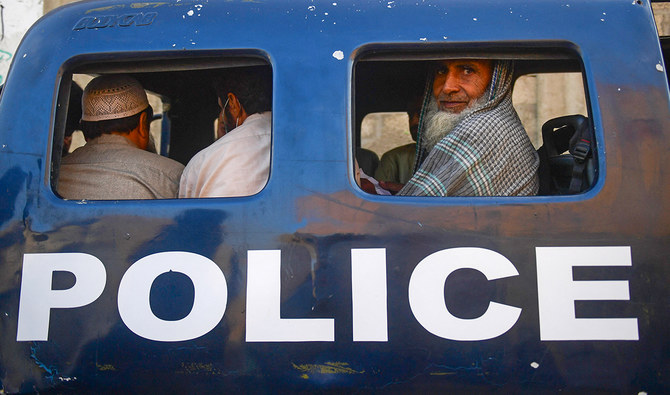ISLAMABAD: Police in Pakistan remained the most corrupt institution, followed by tendering and contracting and judiciary, the Transparency International (TI) Pakistan reported on Saturday, in its latest corruption survey in the South Asian country.
The findings were part of the National Corruption Perception Survey (NCPS) 2023 that was conducted by the Pakistan chapter of the Berlin-based international monitor. Since 2002, Transparency International has conducted eight such surveys in Pakistan.
The latest survey, comprising the perception of levels and frequency of corruption perceived by Pakistanis, was conducted in all four provinces of Pakistan from October 13 till October 31, with 1,600 respondents.
“At national level, National Corruption Perception Survey 2023 has revealed that police remain the most corrupt sector (30 percent), Tendering and Contracting was seen as the 2nd most corrupt (16 percent) and Judiciary 3rd most corrupt (13 percent),” the survey report read.
In Sindh, police climbed to become the most corrupt sector (37 percent), tendering and contracting was seen as the 2nd most corrupt (14 percent), while education improved to become the 3rd most corrupt (13 percent) since the NCPS 2022. In Punjab, police continued to remain the most corrupt sector (25 percent), while judiciary (17 percent) and health (15 percent) ranked 2nd and 3rd most corrupt sectors, according to the survey.
In Khyber Pakhtunkhwa (KP), police climbed to become the most corrupt sector (37 percent), followed by judiciary (15 percent) and tendering and contracting (13 percent). In Balochistan, tendering and contracting (31 percent) remained the most corrupt sector, while police (20 percent) and judiciary (16 percent) were seen as the 2nd and 3rd most corrupt sectors.
At the national level, the watchdog found, the average expenditure on bribery was around Rs11,121, based on 760 respondents. In terms of the public service delivery, the average expenditure on bribery was highest on judiciary (Rs25,846).
Around 75 percent citizens considered private sector to wield too much power and influence often leading to corruption at the national level, while a majority of citizens (36 percent) considered the role of anti-corruption institutions “ineffective.” The major cause of corruption was a lack of merit, according to the survey.
A majority of Pakistanis (68 percent) believed that accountability institutions such as National Accountability Bureau (NAB), the Federal Investigation Agency (FIA) and Anti-Corruption Establishments were used for “political victimization.”
Around 47 percent Pakistanis considered corruption as the main reason hindering Pakistan’s progress.
The survey also shed light on corruption and climate change, and the need for transparency and accountability in climate governance.
“At national level, (62 percent) of Pakistanis consider corruption and unethical practices to contribute to environmental degradation and the exacerbation of climate change effects in Pakistan,” the report read. “In Sindh (61 percent), Punjab (66 percent), KP (80 percent) and Balochistan (38 percent) think that corruption and unethical practices have important role in exacerbating climate change effects in Pakistan.”
At national level, a large population of Pakistanis (67 percent) felt that provincial and local governments did not take their views in shaping climate policies and actions, including projects aimed at addressing climate crisis, according to the report. They also believed that ordinary people could make a difference in the fight against corruption.
















